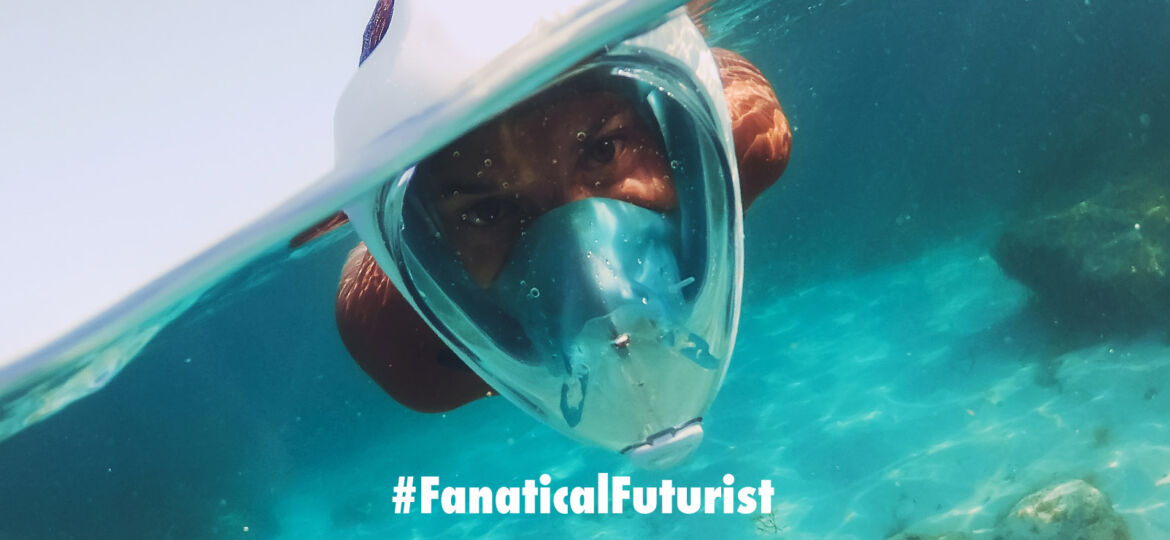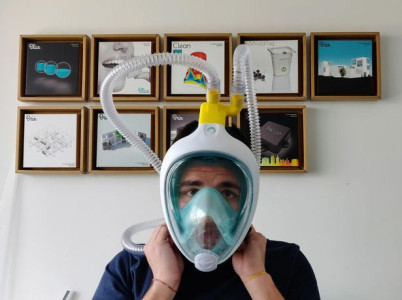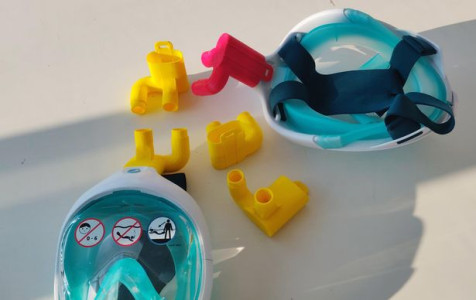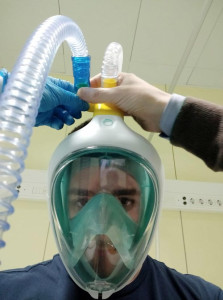
WHY THIS MATTERS IN BRIEF
In today’s pandemic, where supply shortages are rife, there can be no denying the power of human innovation and 3D printing’s role in helping save lives.
 Interested in the Exponential Future? Connect, download a free E-Book, watch a keynote, or browse my blog.
Interested in the Exponential Future? Connect, download a free E-Book, watch a keynote, or browse my blog.
First AI and supercomputers are drafted in to help discover new Covid-19 vaccines, then autonomous drones and robots are sent in to disinfect streets and subways, and look after patients while shepherding people outdoors indoors, and now, following on from using 3D printers to print new parts to fix respirators in Italy Isinnova are combining 3D printers with snorkelling masks from European sports company Decathlon to turn them into functioning C-PAP masks that can be used by Covid-19 patients undergoing oxygen therapy in hospital.
It comes as the number of coronavirus deaths in Italy rose to 6,077 with 63,927 confirmed cases and after reports that doctors in Italy have now been told to save ventilators for the under-60s due to a major shortage.
Gardone Valtrompia Hospital head physician Renato Favero came up with the scuba mask idea and contacted the team at Isinnova, according to a blog post.
The team then contacted sports chain Decathlon to see if they could use their “Easybreath” snorkelling mask in the project and Decathlon was “immediately willing to cooperate.”
“Doctor Favero shared with us an idea to fix the possible shortage of hospital C-PAP masks for sub-intensive therapy, which is emerging as a concrete problem linked to the spread of Covid-19,” reads the post.
“It’s the construction of an emergency ventilator mask, realised by adjusting a snorkelling mask already available on the market.”
A 3D printed prototype was tested on hospital staff and “proven to be correctly working” before it was used for the first time successfully on a patient in need. The company made 100 valves and CEO Cristian Fracassi personally delivered them to a local hospital, but that said, naturally, the inventors say that their new invention should only be used in emergency situations.
“We are reiterating that the idea is designed for healthcare facilities and we wanted to help [create] an emergency mask where it’s not possible to in find [alternative] official healthcare supplies. Neither the mask nor the link are certified and their use is subject to a situation of mandatory need. Usage by the patient is subjected to the acceptance of use of an uncertified biomedical device, by providing a signed declaration,” the company said, adding, “As for the effectiveness of the project we decided to urgently patent the link valve, the Charlotte Valve, in order to prevent any speculation on the price of the component which is free. We clarify that the patent will remain free to use, because it is in our intention that all hospitals in need could use it if necessary.
“We decided to freely share the file so others could 3D print it, and unlike the respirator valve the link is easy to make so it‘s possible for [others] to try to print it correctly. Healthcare facilities in difficulty will be able to purchase the Decathlon mask and get in contact with 3D printers who could make the piece and provide it,” they added.



















